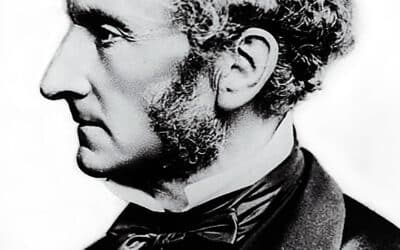One of the most abused words in English is privilege. Observe how indiscriminately this word is spoken and written. For example, in some quarters, all straight white men — without exception — are said to be privileged, which seems absurd.
Practically all we hear about these days is privilege, who has it and who doesn’t. Well, not exactly — because those who are said not to have it are often called “underprivileged.” I think it was the late P. T. Bauer, the great free-market development economist, who pointed out how peculiar a word that is. Underprivileged? Wouldn’t that mean insufficiently privileged? An insufficiently privileged person is nevertheless privileged, no? Apart from the problem of measuring and comparing privileges among people, is that what people really mean by the word? I think not.
Semantics aside, we face a more serious matter with the concept, namely, that vastly disparate things are tossed into that bin. Some alleged privileges are not privileges at all. Rather, they indicate the absence of unjust impediments, mostly imposed by the state. In those cases we should focus not on the unimpeded but on those who are unjustly burdened. The unimpeded are not privileged; they are just free (at least in that one respect). Those whom the state burdens are unfree.
For example, if black people and other members of minorities are more likely than white people to be harassed by the police for trifles or nothing at all, that is an outrageous injustice against the victims. But the unharassed white people are not thereby privileged, not even in a relative sense. In that respect, they are as they should be. The problem is that everyone else is not in the same position. The lack of equal treatment, as unjust as it is, does not necessarily indicate the presence of privilege.
Again, if a privilege is something granted that the recipient has no inherent right to, then not being harassed by the police is in no way a privilege. No one deserves to be harassed by the cops. On the contrary, one has a right not to be harassed. (Not every contact with the police counts as harassment, of course. If one is stopped from accosting an innocent person, the aggressor cannot be said to have been harassed.)
This doesn’t mean privilege does not exist. Our society is rife with it. But it behooves us to be clear on its nature. As I said, a privilege is something bestowed to which the recipient has no inherent right. Privileges, then, come in two forms: legitimate and illegitimate. If parents give their child an allowance that he or she can use freely, we might call that a privilege. But it is legitimate because the money is the parents to give as they wish. On the other hand, if the government grants a cash subsidy to a firm or industry, it is illegitimate because the politicians give away other people’s money to which they have no right. Using the threat of force, they transfer wealth from its producers to nonproducers. This is true of all government transfers, no matter how elevated the politicians’ motives might be.
For a long time, state governments and the federal government provided low-interest loans and mortgage insurance to white homebuyers only. Those governments not only treated the two groups unequally, but they also positively subsidized the whites. Whites unjustly got a leg up, while blacks were ignored or worse. That was scandalous race-based government privilege with long-term consequences.
Not all subsidies are outright cash grants. If the government does a crony industry or firm a favor by imposing a tax (tariff) on imports, that too is a privilege. Ultimately, the unjust burden is imposed on consumers, who will pay higher prices, which is the purpose of the tariff, Foreign firms will also be unjustly harmed. The domestic recipients of the privilege have no right to the loot.
Another form of privilege is a government regulation of peaceful commerce that is more easily borne by large companies than small ones.
The early 19th-century French classical liberal economists understood that government by its very nature as the taxing authority is a dispenser of privileges and the source of class conflict. The conflict, obviously, is between what the liberals called the tax-payers and the tax-eaters. In the liberals’ eyes, all industrious people, including unsubsidized organizers of business firms, were in the tax-paying class, while those who lived off of them rather than working were tax-eaters. The latter class did not consist of the poor by and large, but rather the cronies of government officials or the king. (Marx acknowledged his debt to these bourgeois liberals for originating class theory, but he either misunderstood it or intentionally twisted it to put all business owners, not just the cronies, in the parasitic class.)
Without reservation, we should favor the repeal of all actual state privileges, while also calling for an end to all the burdens that the state imposes on anyone. We can do all this without regarding the unburdened as privileged.








